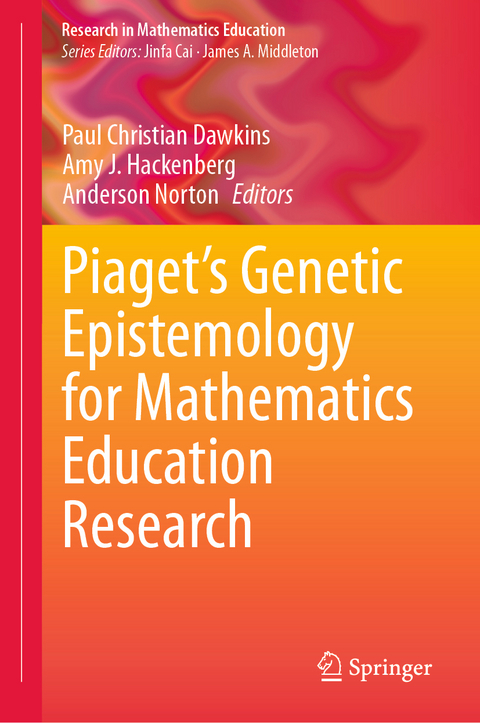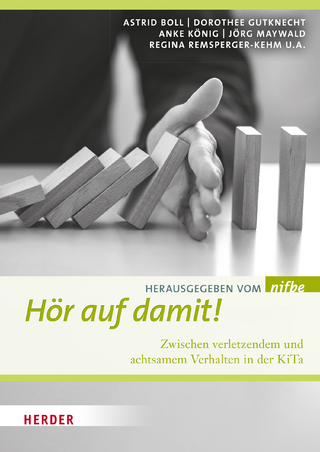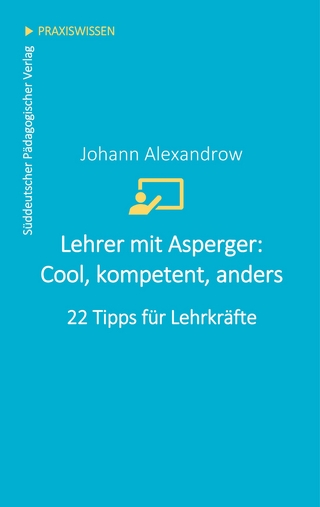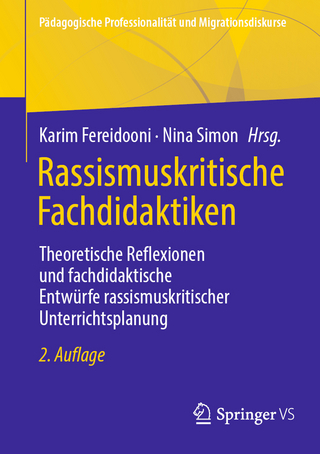
Piaget’s Genetic Epistemology for Mathematics Education Research
Springer International Publishing (Verlag)
978-3-031-47385-2 (ISBN)
lt;p>Dr. Paul Christian Dawkins is a Professor of mathematics education at Texas State University, USA. His research focuses on students' learning of proof-oriented mathematics at the university level, specifically on student understanding of logic, defining, and axioms. Since he began as a professor in 2010, he has published 30 peer-reviewed journal articles and received multiple awards for his work, including the Selden Prize from the Mathematics Association of America. He serves on the editorial board of the Journal of Mathematical Behavior and the International Journal of Research in Undergraduate Mathematics Education.
Dr. Amy J. Hackenberg is a Professor of mathematics education at Indiana University, Bloomington, USA. Her research focuses on how middle school students construct rational number knowledge and algebraic reasoning and the role of units coordination in those processes. She also does research on how to orchestrate mathematics instruction for middle school students at different stages of units coordination, studying her own teaching as well as co-teaching with classroom teachers. She was the recipient of an early career award from the National Science Foundation, and she has earned the Trustees Teaching Award for excellence in teaching four times since she joined the faculty at IU in 2007. She serves on the Advisory Board of the journal For the Learning of Mathematics.Dr. Anderson Norton is a Professor of mathematics education in the Department of Mathematics at Virginia Tech. USA. His research focuses on building psychological models of students' mathematical development-particularly in the domain of fractions knowledge-and epistemology of mathematics. He has served as chair for the editorial panel of the Journal for Research in Mathematics Education, chair of the steering committee for the North American Chapter of the International Group for the Psychology of Mathematics Education, and lead editor for the Springer book, Constructing Number. In 2013, in recognition of his outreach efforts, he received the Early Career Award from the Association of Mathematics Teacher Educators.
Section 1. Introduction to Piaget's genetic epistemology and the tradition of use featured in this book.- Chapter 1) Introduction to Piaget's Genetic Epistemology.- Chapter 2) An Historical Reflection on Adapting Piaget's Work for Ongoing Mathematics Education Research.- Section 2. Key constructs from genetic epistemology being used in ongoing mathematics education research.- Chapter 3) Schemes and Scheme Theory: Core Explanatory Constructs for Studying Mathematical Learning.- Chapter 4) Operationalizing Figurative and Operative Framings of Thought.- Chapter 5) Figurative and Operative Imagery: Essential Aspects of Reflection in the Development of Schemes and Meanings.- Chapter 6) Empirical and Reflective Abstraction.- Chapter 7) Group and Group-like Structures.- Chapter 8) Reflected Abstraction.- Chapter 9) The Construct of Decentering in Research on Mathematics Learning and Teaching.- Chapter 10) Logic in Genetic Epistemology.- Chapter 11) Units Coordination.- Chapter 12) Modeling Quantitative and Covariational Reasoning.- Section 3. Commentaries on genetic epistemology and its use in ongoing research.- Chapter 13) Genetic Epistemology as a Complex and Unified Theory of Knowing.- Chapter 14) Second-Order Models as Acts of Equity.- Chapter 15) Reflections on the Power of Genetic Epistemology by the Modern Cognitive Psychologist.- Chapter 16) Skepticism and Constructivism.- Section 4. Using constructs from genetic epistemology to develop agendas of research.- Chapter 17) Researching Special Education: Using and Expanding Upon Genetic Epistemology Constructs - Jessica Hunt.- Chapter 18) Research in Subitizing to Examine Early Number Construction.- Chapter 19) Researching Coordinate Systems Using Genetic Epistemology Constructs.- Chapter 20) Researching Quantifications of Angularity Using Genetic Epistemology Constructs.- Chapter 21) UsingConstructivism to Develop an Agenda of Research in Stochastics Education Research.
| Erscheinungsdatum | 04.01.2024 |
|---|---|
| Reihe/Serie | Research in Mathematics Education |
| Zusatzinfo | XVII, 617 p. 112 illus., 72 illus. in color. |
| Verlagsort | Cham |
| Sprache | englisch |
| Maße | 155 x 235 mm |
| Gewicht | 1064 g |
| Themenwelt | Mathematik / Informatik ► Mathematik |
| Sozialwissenschaften ► Pädagogik ► Bildungstheorie | |
| Sozialwissenschaften ► Pädagogik ► Schulpädagogik / Grundschule | |
| Schlagworte | Constructivism • Epistemology • genetic epistemology • Jean Piaget • Logico-mathematical reasoning • mathematics education • Methodology • Modeling student thinking • quantitative reasoning • Radical Constructivism • Reflexive abstraction • Research • Structuralism • Theory of learning • Units coordination |
| ISBN-10 | 3-031-47385-X / 303147385X |
| ISBN-13 | 978-3-031-47385-2 / 9783031473852 |
| Zustand | Neuware |
| Haben Sie eine Frage zum Produkt? |
aus dem Bereich


